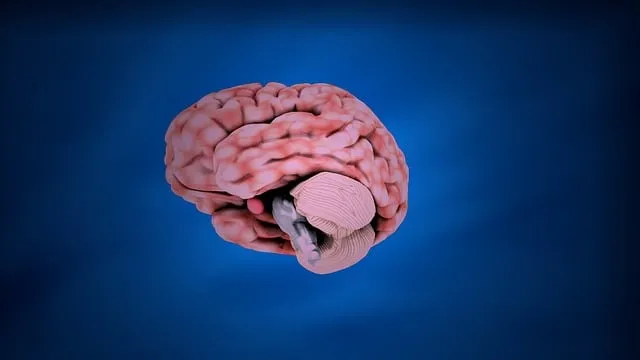The Lone Tree Kaiser Permanente mental health center emphasizes holistic mental wellness through structured visiting hours, tailored services, and community engagement. Their programs, like Social Skills Training and Emotional Regulation techniques, empower individuals to manage their well-being effectively. Optimized visiting hours foster stability, open dialogue about mental health, and reduce stigma, contributing to improved patient experiences and outcomes. The center's commitment to cultural sensitivity and accessible care strengthens community support networks, fostering collective responsibility for mental wellness.
Mental wellness promotion is a holistic approach that goes beyond treating mental illness. It involves fostering resilience, enhancing coping mechanisms, and creating supportive environments. This article explores various strategies to improve mental health outcomes, using Lone Tree Kaiser Permanente as a case study for its successful implementation. We delve into the importance of optimizing visiting hours, engaging communities, overcoming stigma, and leveraging resources like Lone Tree Kaiser Permanente’s model to create a more inclusive and accessible mental healthcare system, particularly with focus on visiting hours at Lone Tree Kaiser Permanente.
- Understanding Mental Wellness Promotion: A Comprehensive Approach
- The Role of Healthcare Facilities: Lone Tree Kaiser Permanente as a Case Study
- Optimizing Visiting Hours: Enhancing Patient Experience and Outcomes
- Strategies for Community Engagement: Building Support Networks
- Overcoming Stigma: Fostering Open Conversations About Mental Health
Understanding Mental Wellness Promotion: A Comprehensive Approach

Mental wellness promotion involves a comprehensive approach that encompasses various strategies to enhance and maintain emotional, psychological, and social well-being. It’s not merely about treating mental health issues but also empowering individuals with tools to thrive. At Lone Tree Kaiser Permanente mental health center, visiting hours are designed to provide patients with a nurturing environment for healing and growth. This holistic perspective includes Social Skills Training, which helps individuals navigate relationships and build connections, boosting their confidence and overall sense of belonging.
Additionally, focusing on Emotional Regulation is pivotal. It equips people with strategies to manage and understand their emotions effectively, promoting resilience in the face of life’s challenges. By integrating these techniques into daily routines, whether through therapy sessions or self-care practices, individuals can lead more fulfilling lives. The Lone Tree Kaiser Permanente mental health center plays a crucial role in this journey by offering specialized services tailored to meet individual needs, ensuring a supportive and comprehensive experience for all visitors.
The Role of Healthcare Facilities: Lone Tree Kaiser Permanente as a Case Study

Lone Tree Kaiser Permanente stands as a shining example of an integrated mental health center that prioritizes both access and holistic care. As a leading healthcare facility, it offers a comprehensive range of services tailored to meet diverse patient needs. Beyond traditional therapy sessions, the center incorporates innovative Mental Health Education Programs Design and embraces cultural sensitivity in its practice, ensuring every individual receives respectful, culturally competent care.
The visiting hours at Lone Tree Kaiser Permanente mental health center are designed to balance patient privacy with community engagement. This approach fosters an environment where individuals can access support while also maintaining a sense of connection. By integrating Mind Over Matter Principles, the center empowers patients with coping strategies that go beyond medication, encouraging resilience and long-term wellness.
Optimizing Visiting Hours: Enhancing Patient Experience and Outcomes

Optimizing visiting hours at a mental health center, such as the Lone Tree Kaiser Permanente location, can significantly enhance patient experiences and outcomes. A well-structured visiting schedule ensures that patients receive consistent, quality care while fostering a sense of stability and routine—crucial aspects for recovery. By implementing thoughtful design principles in mental health education programs, healthcare providers can create an environment that promotes positive thinking and equips individuals with essential conflict resolution techniques.
This approach not only improves patient satisfaction but also encourages proactive engagement in their own healing processes. At Lone Tree Kaiser Permanente, for instance, optimizing visiting hours might involve flexible scheduling to accommodate diverse patient needs, including individual therapy sessions, group support meetings, and family consultations. Such adaptability ensures patients can access the care they need most, ultimately contributing to better mental health outcomes.
Strategies for Community Engagement: Building Support Networks

Building support networks is a key strategy for community engagement aimed at promoting mental wellness. Organizations like the Lone Tree Kaiser Permanente mental health center play a vital role by offering services and creating spaces where individuals can connect and share experiences. Regular visiting hours facilitate accessibility, fostering an environment that encourages open dialogue about mental health. This approach not only reduces stigma but also empowers community members to support one another, a crucial aspect of burnout prevention.
Community outreach programs implementation further strengthens these networks. By reaching out to diverse groups, schools, workplaces, and faith-based organizations, mental health professionals can provide tailored interventions and education. These initiatives ensure that everyone, regardless of background, has access to resources that promote mental wellness and offer guidance on managing stress and challenging situations. Such collaborative efforts create a collective responsibility for one another’s well-being, enhancing the overall resilience of the community.
Overcoming Stigma: Fostering Open Conversations About Mental Health

Overcoming the stigma surrounding mental health is a crucial step in fostering open conversations and promoting well-being within communities. The Lone Tree Kaiser Permanente mental health center, with its dedicated services, serves as a beacon for those seeking support. By normalizing discussions about mental wellness, individuals are encouraged to openly share their experiences, reducing the isolation often associated with mental health struggles.
Fostering these conversations requires effective communication strategies. Mental health professionals play a vital role in implementing risk management planning, ensuring a safe and supportive environment. This includes educating communities, offering peer support, and providing accessible resources, such as those available during visiting hours at Lone Tree Kaiser Permanente. Open dialogue breaks down barriers, empowers individuals to seek help, and paves the way for a healthier, more resilient society.
Mental wellness promotion is a multifaceted approach that involves understanding, supporting, and advocating for individuals’ mental health. As demonstrated by the case study of Lone Tree Kaiser Permanente mental health center, optimizing visiting hours, fostering community engagement, and overcoming stigma are key strategies to enhance patient experiences and outcomes. By implementing these practices, healthcare facilities like Lone Tree Kaiser Permanente can create supportive environments that encourage open conversations about mental health and contribute to building robust support networks within communities.






